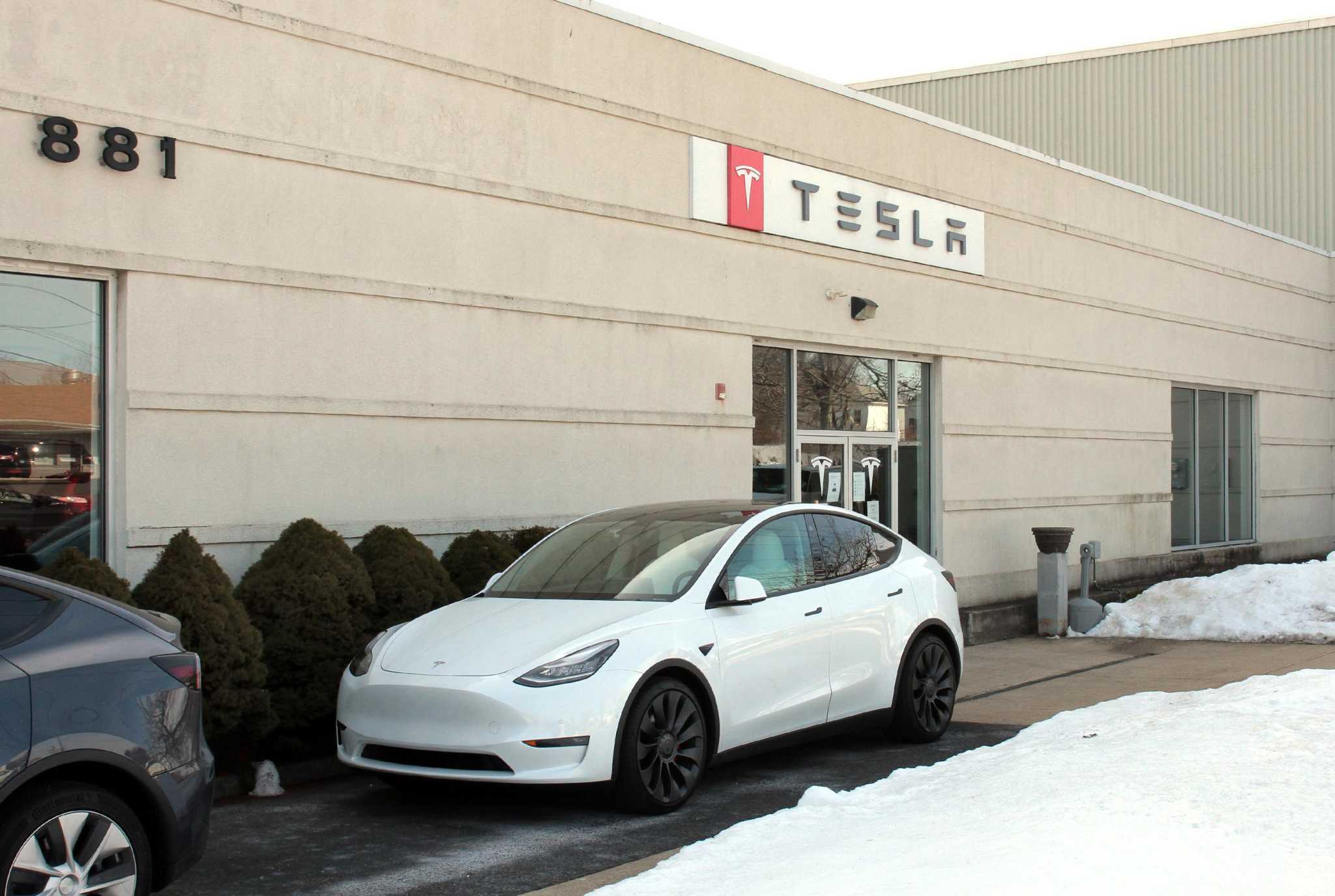Dealerships Push Back Against Mandatory Electric Vehicle Quotas

Table of Contents
Financial Hurdles and Infrastructure Gaps
Adapting to a predominantly electric vehicle market requires significant financial investments for dealerships. The transition is not merely about selling a different type of car; it demands substantial infrastructure upgrades and employee retraining. This financial burden is a major source of dealership pushback against electric vehicle quotas.
-
High Upfront Costs of Installing EV Charging Stations: Installing Level 2 and DC fast chargers requires considerable capital investment, which can be particularly challenging for smaller dealerships or those located in areas with limited consumer demand for EVs. The cost of installation, maintenance, and electricity consumption adds a substantial ongoing expense.
-
Need for Specialized Training for EV Mechanics and Sales Staff: EVs require specialized knowledge for maintenance and repair, different from traditional gasoline-powered vehicles. Dealerships must invest in training programs for their mechanics and sales staff to properly service and sell EVs, adding to their financial strain.
-
Limited Consumer Demand in Certain Regions: The demand for EVs varies significantly across geographical locations. Dealerships in rural areas or regions with limited charging infrastructure may struggle to meet EV quotas, even with substantial investment, due to low consumer demand.
-
Concerns about EV Battery Supply Chain Issues: The supply chain for EV batteries remains volatile, leading to potential delays and price fluctuations. This uncertainty adds another layer of risk for dealerships investing in EV inventory.
Consumer Demand and Market Readiness
While the push for electric vehicle quotas is driven by environmental concerns, the current market reality raises questions about whether the demand is truly ready for such a rapid transition. The existing consumer base shows a mixed response to electric vehicles, posing a serious challenge to dealerships tasked with meeting these quotas.
-
Range Anxiety and Charging Infrastructure Limitations: Range anxiety, the fear of running out of battery charge before reaching a charging station, remains a significant barrier to EV adoption. The limited availability of public charging stations, particularly outside of urban areas, exacerbates this concern.
-
Higher Purchase Prices of EVs Compared to Gasoline-Powered Vehicles: Electric vehicles typically have a higher upfront cost compared to their gasoline-powered counterparts. This price difference can deter potential buyers, particularly in the current economic climate, impacting the sales volume dealerships can achieve.
-
Lack of Public Awareness about EV Benefits and Government Incentives: Many consumers remain unaware of the environmental benefits of EVs and the government incentives available to encourage their purchase. Increased public awareness campaigns are needed to stimulate demand and support the transition.
-
Concerns about Battery Lifespan and Replacement Costs: The lifespan of EV batteries and the cost of replacement remain significant concerns for consumers. Addressing these concerns through better battery technology and transparent cost information is crucial for wider adoption.
Dealership Concerns about Government Support and Fair Practices
Dealerships argue that the government's approach to imposing EV quotas lacks adequate support and consideration for their specific circumstances. This perceived lack of fairness fuels the pushback against these mandates.
-
Lack of Sufficient Government Funding for Dealership Infrastructure Upgrades: The financial burden of adapting to EV sales is immense. Dealerships are calling for increased government funding to support the installation of charging infrastructure and employee retraining programs.
-
Concerns about the Feasibility of Meeting Quotas in Underserved Markets: Meeting EV quotas can be particularly challenging for dealerships in rural or underserved areas, where consumer demand is lower and infrastructure is limited. A more flexible and targeted approach is needed to address the varying conditions across different markets.
-
Calls for More Flexibility and Realistic Timelines for EV Quota Implementation: Dealerships advocate for phased implementation of quotas, allowing them time to adapt to changing market conditions and avoid abrupt economic disruption.
-
Demand for Transparency and Clear Communication from Government Agencies: Dealerships are calling for greater transparency and clearer communication from government agencies regarding quota targets, support programs, and future policy adjustments.
Alternative Solutions and Industry Collaboration
Addressing the challenges faced by dealerships while achieving environmental goals requires collaboration and a more nuanced approach. Finding alternative solutions requires a collaborative effort between governments, manufacturers, and dealerships.
-
Phased Implementation of EV Quotas with Adjustable Targets: A gradual increase in EV quotas, adjusted based on market performance and infrastructure development, would allow dealerships to adapt more effectively.
-
Increased Government Incentives for EV Purchases and Dealership Upgrades: Significant government incentives can stimulate consumer demand for EVs and provide dealerships with the necessary financial support for infrastructure improvements and employee training.
-
Public Awareness Campaigns to Boost Consumer Demand: Public awareness campaigns highlighting the environmental benefits of EVs, along with available government incentives and dispelling common misconceptions, are crucial for fostering consumer demand.
-
Investment in a Robust Nationwide Charging Network: A comprehensive, nationwide charging network would address range anxiety and encourage EV adoption. This investment would need to be a collaborative effort, with government, private sector, and potentially utility involvement.
Conclusion: Finding a Balance Between EV Adoption and Dealership Viability
The pushback against mandatory electric vehicle quotas highlights the complex interplay between environmental goals and the economic realities of the automotive industry. Dealerships play a critical role in the transition to electric vehicles, and a balanced approach is needed to ensure their viability while achieving ambitious EV adoption targets. This requires collaboration, open dialogue, and a pragmatic approach that considers the specific circumstances of individual dealerships and regional market conditions. Learn more about the debate surrounding electric vehicle quotas and engage in discussions about finding sustainable solutions for a successful transition to a greener automotive future. Contact your representatives to voice your concerns or support for specific policies related to EV mandates and the automotive industry. The future of the automotive landscape depends on finding a mutually beneficial path forward.

Featured Posts
-
 Anti Vaccine Advocates Role In Hhs Review Of Autism Vaccine Link Sparks Outrage
Apr 27, 2025
Anti Vaccine Advocates Role In Hhs Review Of Autism Vaccine Link Sparks Outrage
Apr 27, 2025 -
 The Number Of Horse Deaths At The Grand National 2025 Perspective
Apr 27, 2025
The Number Of Horse Deaths At The Grand National 2025 Perspective
Apr 27, 2025 -
 Werner Herzogs Bucking Fastard Casting News And Sisterly Leads
Apr 27, 2025
Werner Herzogs Bucking Fastard Casting News And Sisterly Leads
Apr 27, 2025 -
 Why Middle Managers Are Crucial For Company Success And Employee Growth
Apr 27, 2025
Why Middle Managers Are Crucial For Company Success And Employee Growth
Apr 27, 2025 -
 Open Thread Community Discussion February 16 2025
Apr 27, 2025
Open Thread Community Discussion February 16 2025
Apr 27, 2025
